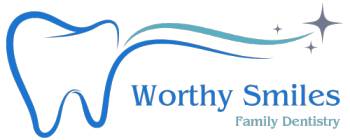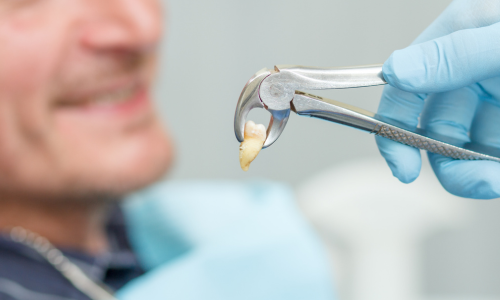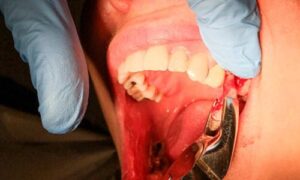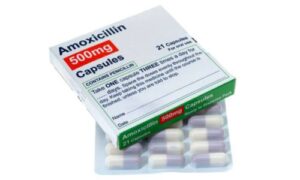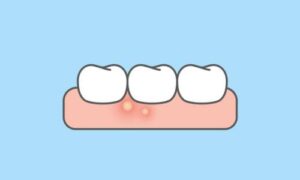Introduction
The idea of tooth extractions frequently brings notions of pain and unease to mind, giving rise to several myths and misunderstandings. Tooth extraction is a dental procedure that often evokes anxiety and misconceptions among individuals. Over time, myths and misconceptions about tooth extraction, known as “Tooth extraction Myths,” have circulated, contributing to unnecessary fear and uncertainty. However, the truth is that tooth extractions are routine dental procedures that play a vital role in preserving oral health. This comprehensive guide aims to debunk common tooth extraction myths, providing accurate information to help individuals make informed decisions about their oral health.
Myth 1: Tooth Extraction Is Always Painful
One prevalent myth surrounding tooth extraction is the belief that it is an excruciatingly painful procedure. In reality, advancements in dental techniques and anesthesia have significantly minimized pain and discomfort associated with tooth extraction. Dentists employ local anesthesia to numb the affected area, ensuring that patients experience minimal pain during the procedure.
Myth 2: Sedation is Mandatory for Extractions
Reality: Sedation is a choice, not an obligatory measure. Although certain individuals may opt for sedation to alleviate anxiety, numerous extractions are carried out solely with local anesthesia, effectively numbing the targeted area. Your dentist will discuss with you to determine the most suitable approach, considering your requirements and comfort preferences.
Myth 3: Tooth Extraction Leads to Immediate Health Issues
Some individuals fear that extracting a tooth may result in immediate health problems or complications. In truth, tooth extraction is a routine dental procedure to address issues such as severe decay, infection, or overcrowding. When performed by a qualified dentist, tooth extraction is a safe and necessary measure to maintain oral health.
Myth 4: Tooth Extraction Is Always Followed by Dry Socket
The misconception that every tooth extraction leads to a dry socket, a painful condition where the blood clot is dislodged or dissolves, is unfounded. While dry sockets can occur, they are relatively rare and often attributed to factors such as smoking, poor oral hygiene, or not following post-extraction care instructions. Proper care can significantly minimize the risk of developing a dry socket.
Myth 5: Tooth Extraction Is Only for Wisdom Teeth
Another common myth is that tooth extraction is exclusively reserved for wisdom teeth. While wisdom teeth extraction is a prevalent procedure, various dental issues may necessitate the removal of other teeth, such as severely decayed or damaged molars. The decision to extract a tooth depends on the dental condition and the dentist’s assessment.
Myth 6: Tooth Extraction Is a Lengthy and Complicated Process
Contrary to the belief that tooth extraction is lengthy and complicated, the procedure is often quick and straightforward. Simple extractions, where the tooth is visible and easily accessible, can be completed in a short amount of time. Complex extractions may take longer, but dentists are trained to handle such cases efficiently.
Myth 7: Tooth Extraction Is the Only Solution for a Decayed Tooth
While tooth extraction is a viable solution for severely decayed teeth, it is not the only option. Dentistry offers various restorative procedures, such as dental fillings, crowns, and root canal treatments, to preserve and maintain a decayed tooth’s functionality. Extraction is typically considered when other options are not feasible.
Myth 8: Tooth Extraction Is a Last Resort
There is a misconception that tooth extraction is always the last resort in dental care. Dentists carefully evaluate each case and recommend extraction when it is the most appropriate and beneficial option. Preserving natural teeth is a priority, but in certain situations, extraction becomes necessary to prevent further complications.
Myth 9: Tooth Extraction Leads to Facial Deformities
Some believe that extracting a tooth may result in facial deformities or changes in facial structure. This myth is not grounded in reality. Tooth extraction, especially when performed for a specific dental issue, does not lead to significant alterations in facial appearance. Modern dentistry focuses on preserving aesthetics while addressing oral health concerns.
Myth 10: Tooth Extraction Is Only for Older Individuals
Age is not a determining factor for tooth extraction. While wisdom teeth are commonly extracted during late adolescence or early adulthood, individuals of all ages may undergo tooth extraction for various reasons. Dental conditions such as severe decay, infection, or trauma can affect individuals at any age, necessitating tooth removal.
Myth 11: Tooth Extraction Is Expensive
The cost associated with tooth extraction varies depending on factors such as the complexity of the procedure, the need for sedation, and geographical location. However, dispelling the myth that tooth extraction is always an excessive expense is essential. Dental professionals work with patients to explore cost-effective options and payment plans, making oral healthcare accessible to more individuals.
Myth 12: Replacing Extracted Teeth Is Impossible
Reality: Contemporary dentistry provides numerous alternatives for replacing extracted teeth. Options such as dental implants, bridges, and dentures can restore your smile and preserve oral function. Your dentist will guide you in selecting the most suitable option tailored to your situation.
Myth 13: Eating or Drinking Is Prohibited After an Extraction
Reality: Although you may need to exercise caution regarding your diet immediately after an extraction, you can typically return to a regular eating and drinking routine within a day or two. Your dentist will provide specific post-extraction dietary guidelines to facilitate a smooth recovery.
Debunking Tooth Extraction Myths: The Importance of Dental Education
Tooth extraction myths can contribute to dental anxiety and prevent individuals from seeking necessary dental care. It is crucial to debunk these tooth extraction myths and emphasize the importance of dental education. Understanding the reality of tooth extraction promotes informed decision-making, reduces fear, and encourages individuals to prioritize their oral health.
Conclusion
In conclusion, separating fact from fiction is crucial for tooth extraction myths. Dispelling these misconceptions empowers individuals to make informed decisions about their oral health. Tooth extraction is a common and safe dental procedure by qualified professionals. By addressing these myths, we aim to promote a better understanding of tooth extraction and encourage proactive dental care for overall well-being. Consulting with a dentist is the best way to receive accurate information tailored to your dental needs.
FAQs
FAQ 1: Are tooth extractions always a painful procedure?
Answer: No, tooth extractions are not always painful. Modern dentistry incorporates advanced techniques and anesthesia to minimize pain and discomfort during the procedure. Dentists use local anesthesia to numb the affected area, ensuring that patients experience minimal pain. Communicating concerns with your dentist, who can address anxieties and provide a comfortable experience, is essential.
FAQ 2: Is tooth extraction the only solution for severe tooth decay?
Answer: While tooth extraction is a viable solution for severely decayed teeth, it is not the only option. Dentistry offers various restorative procedures, such as dental fillings, crowns, and root canal treatments, to preserve and maintain a decayed tooth’s functionality. The decision between extraction and restoration depends on the extent of decay and the dentist’s assessment of the tooth’s overall health.
FAQ 3: Can I resume eating and drinking immediately after a tooth extraction?
Answer: While you may need to be cautious about what you eat and drink immediately after a tooth extraction, you can usually return to a normal diet within a day or two. Dentists provide specific post-extraction dietary guidelines to ensure a smooth recovery process. It’s crucial to follow these guidelines to promote healing and prevent complications. If you have concerns about your post-extraction diet, consult your dentist for personalized advice.
